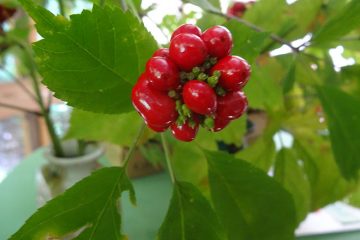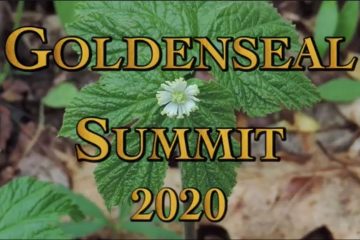
A Roundtable Discussion on the Future of Goldenseal
Goldenseal (Hydrastis canadensis) is in trouble.
An understory plant found in the woodlands of the Eastern United States, its continued presence in our forests is becoming threatened by both habitat loss and harvesting to feed the demands of domestic and international trade. According to the United Plant Savers organization, there is a high demand in the marketplace for organic Goldenseal. Wild-harvested roots are becoming increasingly harder to find, and the roots that do exist tend to be smaller than in years past.
The International Union for Conservation of Nature (IUCN) recently published the status of Goldenseal as “vulnerable” due to unregulated wild-harvesting compounded by a loss of habitat. Their goal with their “Hope for Hydrastis” Project is to inspire a new generation of Goldenseal farmers.
Herb manufacturers are frustrated in their ability to obtain this important herb and declare that Goldenseal will disappear from their product lines. Growers of this herb are either going out of business or are not wanting to harvest their crop due to the low prices caused by the wild crafting and over harvesting in the woodlands.
Protection of wild populations of Goldenseal is needed to restrict the rate of harvesting. A supply route from the cultivated forest beds to the manufacturer is needed so that Goldenseal farmers can obtain a fair price for their herbal crop.
Online Streaming Event
The North Carolina Ginseng Association, United Plant Savers, and Living Web Farms sponsored an online streaming event to capture the opinions and recommendations of a broad cross section of experts and producers of Goldenseal. The virtual event took place on April 22, 2020.
View the Goldenseal Summit Virtual Roundtable Videos
- Goldenseal Summit 2020 (Part 1)
- Goldenseal Summit 2020 (Part 2)
- Goldenseal Summit 2020 (Part 3)
- Goldenseal Summit 2020 (Part 4)
- Goldenseal Summit 2020 (Part 5)
Over 30 experts in this industry are represented in these roundtable interviews. The areas of discussion include Government/legislation, product manufactures, existing Goldenseal farmers, Universities and agricultural extensions, herb schools, non-profit plant organizations, and Native Americans. Participants in these discussions include Rep. John Ager, Patryk Battle, Margaret Bloomquest, Katie Commender, Jeanine Davis, Jeannie Dunn, Robert Eidus, Joe Hollis, Susan Leopold, Paul Strauss and Shawn Swartz.
Each table addressed specific questions and addressed action items, including how to restrict wildcrafting of Goldenseal, how to provide forest growers with the necessary tools to increase production of Goldenseal, how to get a fair price for farm-grown Goldenseal products, requesting that the US Government and the Bureau of Land Management fund Goldenseal as an agricultural project, providing herbal school students with information on the threat to wild Goldenseal and educate them on alternative herbs, encouraging universities and agricultural extensions to produce more documents for the tool box for Goldenseal growers, and determining a central organization to act as the clearinghouse for information on Goldenseal and to host that data on their website.
This webinar series was made available for free to Herbal Schools, new goldenseal farmers, Native American tribes, and universities. Visit United Plant Savers, and Living Web Farms for more information.







